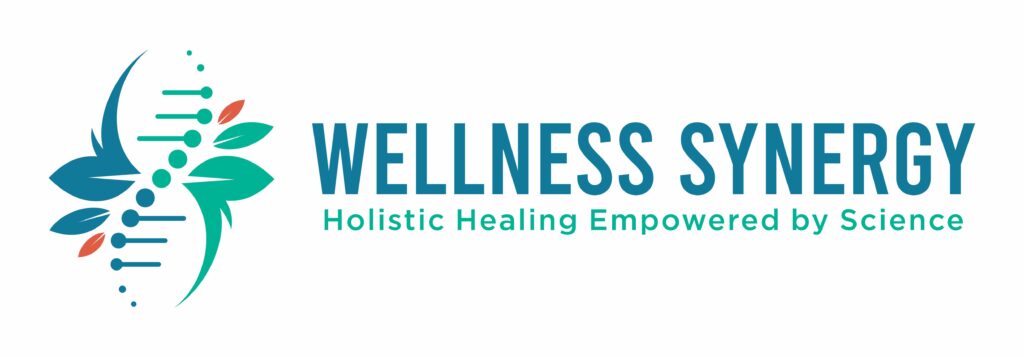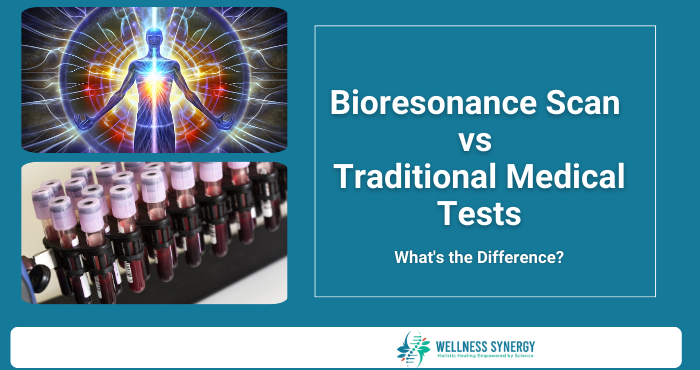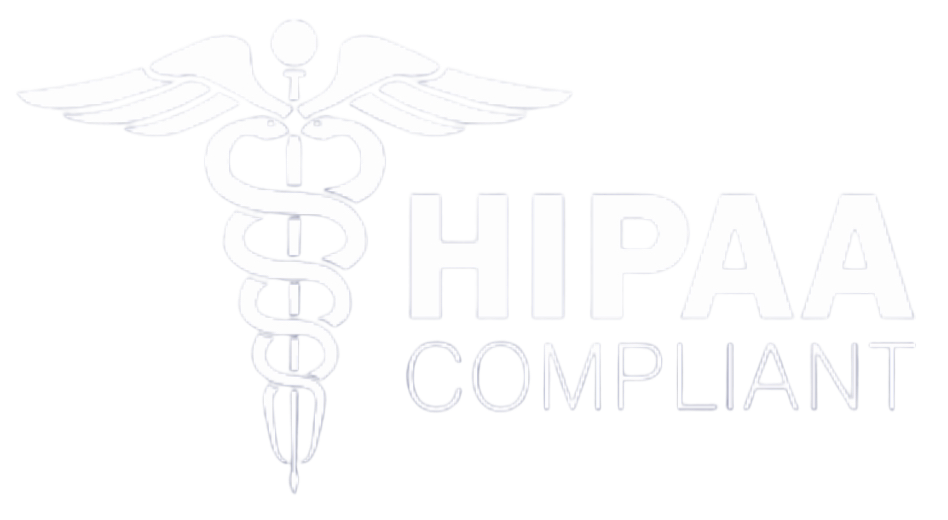Bioresonance Scan vs Traditional Medical Tests: What’s the Difference?
In recent years, people have become more interested in alternative ways to assess their health and wellness. One of these options is the Bioresonance Scan, a noninvasive method that claims to detect imbalances in the body’s energy. While this technique is growing in popularity, many still wonder how it compares to traditional medical tests that doctors use. This blog will explore the key differences between Bioresonance Scans and traditional medical tests to help you make an informed decision about your health.
What is a Bioresonance Scan?
A Bioresonance Scan is a health testing method that measures the energy or frequencies your body gives off. Every part of your body—whether it’s organs, tissues, or cells—vibrates at a certain frequency. When a person is healthy, these frequencies are balanced and harmonious. The Bioresonance machine detects these frequencies and compares them to normal or healthy.
This scan can help detect imbalances or signs of potential health issues even before symptoms show up. The idea is to use this information to encourage the body’s natural healing abilities and restore balance. It’s a holistic approach to prevent illness before it becomes a problem.
What Are Traditional Medical Tests?
Traditional medical tests are well-known diagnostic tools doctors use to assess physical health. These tests often involve analyzing samples from your body, such as blood, urine, or images of your internal organs. The goal of traditional tests is to identify diseases or conditions that may be affecting your health.
Common types of traditional tests include:
- Blood Tests: To check for cholesterol, glucose, and hormones.
- X-rays and MRIs: To look for fractures, tumors, or other internal issues.
- Urine Tests: To check kidney function or detect infections.
- ECG (Electrocardiogram): To measure the electrical activity of the heart.
These tests are often used to diagnose diseases after symptoms appear or to monitor ongoing health conditions.
Key Differences Between Bioresonance Scans and Traditional Medical Tests
How They Approach Health
Traditional medical tests focus on diagnosing specific diseases or conditions after developing symptoms. For example, if you’re feeling sick, a blood test or X-ray might help identify what’s wrong. The primary goal is to diagnose and treat existing health issues.
A Bioresonance Scan, however, takes a more preventative approach. It looks for energy imbalances in the body before symptoms even appear. The idea is to catch potential health problems early, helping to prevent them from becoming more significant issues later on.Technology and Methods
Traditional medical tests use physical methods to assess your health. For instance, a blood test measures substances like sugar or cholesterol, while an MRI shows images of your organs to detect problems.
A Bioresonance Scan uses electromagnetic waves to measure the body’s energy vibrations. The machine compares these vibrations to healthy frequencies. While some believe this method can offer valuable insights into your overall health, it’s still controversial and not widely accepted in mainstream medicine.Invasiveness
One significant advantage of a Bioresonance Scan is that it’s completely non-invasive. There are no needles or imaging procedures involved. All you need to do is sit back and hold a small device or have electrodes placed on your skin to measure your body’s energy.
On the other hand, traditional medical tests can be invasive. For example, blood tests require a needle to draw blood, and imaging procedures like X-rays or MRIs may involve radiation or other discomforts.Accuracy in Diagnosing Health Conditions
Traditional medical tests are highly effective in diagnosing specific conditions. For example, a blood test can reveal if you have high cholesterol, or an MRI can show if you have a broken bone or a tumor.
Bioresonance Scans, however, focus on detecting energy imbalances. While they can provide insight into your overall wellness holistic health, they aren’t as accurate in diagnosing physical conditions like infections, fractures, or other diseases. Bioresonance is more about prevention and detecting early signs of imbalance rather than confirming a specific disease.-
Focus on Prevention vs. Treatment
Traditional medical tests are usually used after symptoms appear. They help doctors determine what’s causing the problem and how to treat it. Treatment options might include medication, surgery, or other interventions.
Bioresonance Scans, however, are mainly used to help prevent health issues. They focus on finding energy imbalances before they turn into serious problems. This can be especially helpful for people who want to take a proactive approach to their health. -
Scientific Backing and Acceptance
Traditional medical tests are based on years of research and are widely accepted in the medical field. Doctors rely on these tests to accurately diagnose and treat illnesses.
Bioresonance Scans, while growing in popularity, are still considered controversial by many in the medical community. There is limited scientific evidence to support the effectiveness of Bioresonance, and it is not accepted as a standard medical diagnostic tool. However, many holistic health healing practitioners believe in its benefits and use it as a complementary method for overall wellness.
Pros and Cons of Bioresonance Scans vs. Traditional Medical Tests
Bioresonance Scan
Pros:
- Non-invasive and comfortable
- Can detect early signs of imbalances before symptoms appear
- Focuses on overall health and balance
- Quick and painless
Traditional Medical Tests
Pros:
- Well-researched and scientifically proven
- Accurate in diagnosing a wide range of medical conditions
- Can be used to monitor ongoing conditions and treatment progress
Conclusion:
Choosing between a Bioresonance Scan and traditional medical tests depends on your health goals and needs. If you’re looking for early detection of imbalances and want to take a proactive approach to your health, a Bioresonance Scan may be a great option.
However, Functional medical tests are the most reliable choice if you’re dealing with specific symptoms or need an accurate diagnosis of a condition.
At Wellness Synergy, we believe in helping our clients make informed decisions about their health. Combining Bioresonance Scans and traditional medical tests, you can take a more comprehensive approach to your health and wellness. This combination allows you to embrace modern medicine and alternative therapies for a balanced and healthy life.
Remember, the best way to achieve overall wellness is to take care of your body, mind, and energy through both prevention and treatment when necessary.
Disclaimer:
Wellness Synergy, its products, and Dr. Ilka Tamar do not intend to cure, treat, heal, or prevent diseases or illnesses. These statements have not been evaluated by the Food and Drug Administration. The information on our social media and website is for informational purposes only and is not a substitute for medical advice or diagnosis from your physician or other healthcare professional. This information is meant for general wellness purposes and does not claim to diagnose, treat, or cure any illness or health condition. If you suspect you have a medical issue, please contact your physician or healthcare provider.
FAQ: Bioresonance Scan vs. Traditional Medical Tests
What is a Bioresonance Scan?
A Bioresonance Scan is a non-invasive test that measures the energy frequencies emitted by your body to detect imbalances or early signs of potential health issues.
How does a Bioresonance Scan differ from traditional medical tests?
Traditional medical tests are typically used to diagnose existing conditions after symptoms appear, while Bioresonance focuses on detecting energy imbalances before symptoms emerge, promoting a preventative approach to health.
Is a Bioresonance Scan invasive?
No, a Bioresonance Scan is completely non-invasive. It involves measuring energy frequencies through electrodes or a small device, with no needles or imaging required.
Can Bioresonance Scans diagnose diseases?
Bioresonance Scans are not designed to diagnose specific diseases like blood tests or MRIs. They focus on detecting imbalances and early signs of potential health problems.
What are the benefits of traditional medical tests?
Traditional medical tests, such as blood tests and MRIs, are highly accurate for diagnosing specific conditions and are widely accepted in the medical community.
Should I choose a Bioresonance Scan or a traditional test?
The choice depends on your health goals. If you want early detection and a preventative approach, a Bioresonance Scan may be beneficial. If you need a precise diagnosis or are experiencing symptoms, traditional tests are more suitable.
Are Bioresonance Scans scientifically proven?
While Bioresonance Scans are gaining popularity, they are still considered controversial in mainstream medicine due to limited scientific evidence supporting their effectiveness.
Can I use both Bioresonance and traditional tests?
Yes, combining both methods can provide a more comprehensive approach to health, addressing both preventative care and diagnosing specific conditions.


